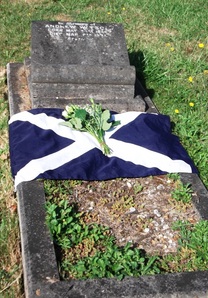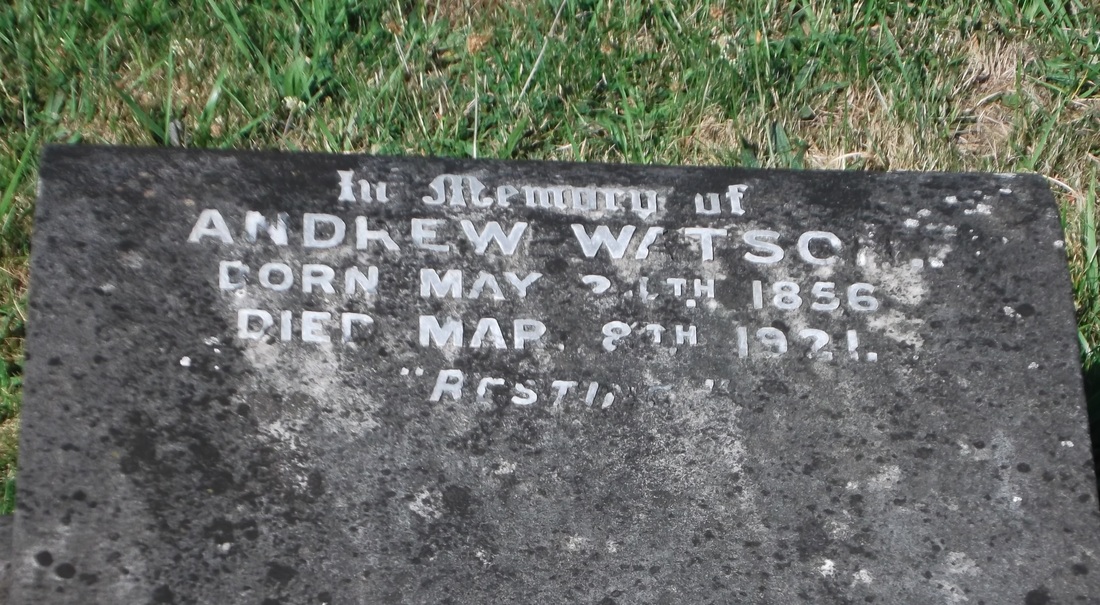
On the morning of this week's England v Scotland match, I travelled out to the leafy London suburbs. Armed with a detailed site plan, courtesy of the helpful staff at Richmond Cemetery, it didn't take long to find his grave. The cemetery is tidy but other than sports historians nobody seems to have paid any attention to this nondescript plot in section 4.
After the joy of discovery, the next thing to stand out was the detail on the headstone: his name and life dates. Having only pinpointed his death a few months ago, the date of birth was a revelation: 24 May 1856. All published sources until now have stated 18 May 1857, but I have long suspected this was false as his age in censuses and documentation always indicated he was a year older. Here was proof that the later date was a guess that had become accepted 'truth'.
I placed a Scottish saltire flag and a few flowers on the grave to commemorate his place in Scottish football history. But I have a strong feeling that Andrew Watson deserves more, a prominent and permanent memorial that truly recognises his place in sporting history as the first black international footballer, the first black administrator (he was secretary of Queen's Park) and possibly the first black professional player (at Bootle).

 RSS Feed
RSS Feed